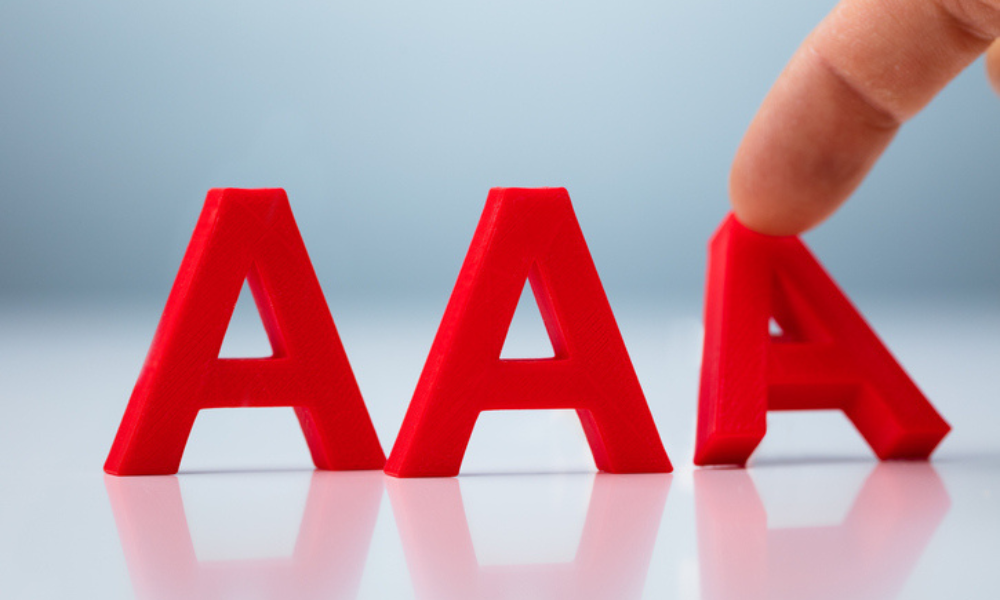Report outlines threat softening economy poses to Great White North’s standing among rating agencies

As it stands, Canada is among the few countries with a AAA credit rating from at least two of the world’s top rating agencies. But as it stares down the barrel of a softening economy, could the Great White North lose that distinction?
That’s what RBC’s Claire Fan sought to examine in a new report.
“The Canadian economic backdrop continues to soften with a string of downside data reports confirming the relative under-performance from other economies,” Fan said. “GDP in Q3 contracted by a larger than expected 1.1% (annualized) in Canada, led by slowing business investment and flat household spending.”
While Canadian consumers will likely be relieved by the slowing rate of inflation, debt continues to be a cause for concern. Households are still facing cost-of-living challenges and a softening labour market, Fan said, which has fed into a rise in delinquencies for non-mortgage loans.
Read more: Canadians avoid getting debt help because of stigma, BDO Canada report shows
With the economy faltering in the face of growing headwinds stemming from higher interest rates, she said most of the metrics that would inform Canada’s credit rating could deteriorate quickly in a soft economic backdrop.
Under the positives column, Canada’s net government debt remains in line with other AAA-rated economies. It has significantly higher gross government debt levels, Fan said, though that’s mostly due to Canada pre-funding its future pension liabilities.
“Net public debt levels are much lower once taking into account a large stockpile financial assets, including pension assets,” she said.
Canada’s private sector debt-to-GDP has risen substantially higher than historically, but similar moves elsewhere has kept it in the middle of the pack of AAA-rated economies.
The resilience of the financial sector, with banks that are relatively well capitalized, is another point in Canada’s favour. And while the Bank of Canada’s credibility has been questioned in the past few years, Fan said the fact that longer-term inflation expectations are anchored “signals confidence in the central bank ability to restore low and steady inflation over the longer run.”
Read more: Senate demands greater transparency from Bank of Canada
There’s still cause for concern, though. “More than half of Canada’s total general government debt is accounted for by provincial governments, the highest share of total national non-central government debt across all AAA rates economies,” she said.
Since last year, she said the Canadian economy has been an underperformer, its record marred by a five-straight-quarter decline in per-capita output as of Q3 2023. Compared to other AAA-rated countries, Canada is a relative laggard in terms of per-capita output, she added.
While the high debt servicing burden for Canada is expected to smother its activity well below potential next year, she says the outlook past 2024 remains positive.
“Population growth in Canada has been much faster comparing to other advanced economies – and a rising population means more potential economy-wide production and revenue growth, as well as a larger tax base for governments to draw from,” she said.
“Recently announced immigration targets pointed to sustained growth among permanent residents out to 2026, adding to higher labour input and potential GDP growth in the years ahead.”



